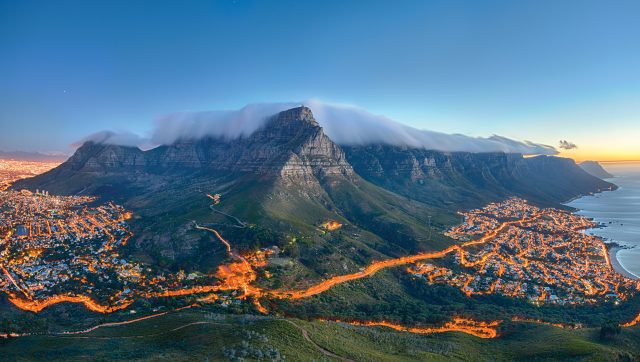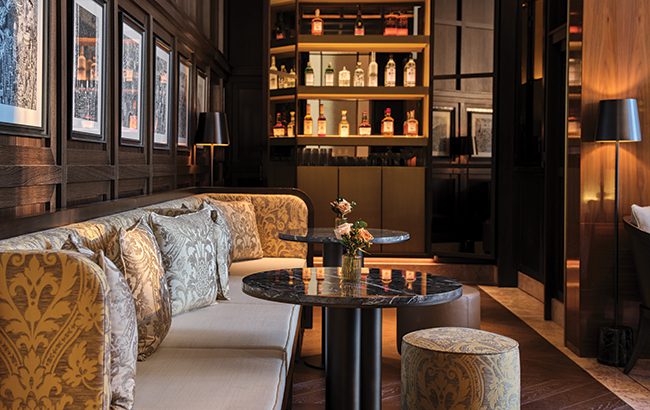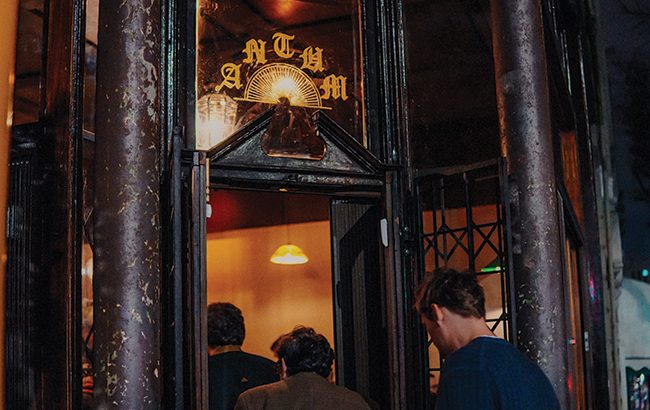Global Bar Report 2024: Africa and the Middle East
All over Africa and the Middle East, bars are buzzing with a new vibrancy thanks to an influx of international talent, and local pride.

Africa’s hospitality sector is evolving at an astonishing rate. Gone are the hotel monopolies and stale peanuts with your overpriced Mojito; rising prosperity is fuelling an upwardly mobile middle class in urban areas, and there is a culture of social drinking in sub-Saharan Africa.
The most established are the nighttime economies of Lagos in Nigeria, Marrakech in Morocco, and Cape Town in South Africa, where an intoxicating medley of jùjú, afrobeats, and Nigerian hip-hop intermingles with bespoke cocktails, views to die for and exotic botanicals. New openings, meanwhile, are becoming a regular occurrence in cities throughout the continent.
Yet local investment has not been limited to the towering metropolises – up-and-coming destinations include Accra in Ghana, Addis Ababa in Ethiopia, and Angola’s capital, Luanda. According to the African Development Bank, the continent is expected to remain “the second-fastest-growing region after Asia”, with strong growth predicted in Niger, Senegal, Rwanda, Côte d’Ivoire, Ethiopia and Uganda. Will the bubble burst due to political instability and commodity price fluctuations? Africans – and, increasingly, foreign investors – seem impervious to such pessimistic ruminations.
Perhaps as significant was the unveiling of Ajabu, Africa’s first international cocktail and spirits festival, which debuted in South Africa this year. Co-founded by leading mixologist and educator Colin Asare-Appiah, it was set up to “inspire and empower the bartending community”. Working with a diverse pool of talent – including cocktail junkies from London’s Trailer Happiness – Asare-Appiah and his business partner, Mark Talbot Holmes, have ambitions to make Ajabu (whose name means ’wondrous’ in Swahili) a permanent bi-annual event. The success of this pioneering initiative is arguably symptomatic of an important paradigm shift, as key stakeholders now measure their industry’s performance against global rather than regional standards.
There is an air of confidence about the modern African bar scene. Twenty-five years ago, a visitor to Lagos, Johannesburg, or Nairobi would find a paltry selection of venues attached to hotels, and little else. Today, they marvel at the wealth of choice, running the gamut from sophisticated lounge bars to relaxed speakeasies, and student haunts. This explosion of variety, a product of industrial expansion, urbanisation and rising disposable incomes, has been revolutionary after the stultifying years of the 1990s.
Cape Town creativity
Global investors are eyeing up further African opportunities, while Japanese bartender Tetsuo Hasegawa has injected some extra creativity – and multicultural flavour – into super-trendy Cape Town. “I fell in love with the Western Cape when I went backpacking 11 years ago,” says Hasegawa, who founded Anthm in the city this year.
“But so much has changed since my initial visit: there has been an explosion of investment and talent that has propelled the city’s bar scene to unprecedented heights. For that reason, I decided to settle here with my wife and open Anthm to welcome the people of Cape Town with a warm embrace.”
Taking the temperature of the Middle East, however, is far more delicate. Two key centres of nightlife, Tel Aviv in Israel and Beirut in Lebanon, have become victims of the region’s capricious political climate; one can only hope that peace is restored as swiftly as possible. In contrast, in Turkey, Istanbul’s bars go from strength to strength, benefitting from the city’s diverse population and buoyant tourist economy.
Meanwhile, Dubai’s cocktail scene remains a motor of Middle Eastern hospitality, attracting bartending talent from across the world. “As Dubai is a city that is always evolving, it is increasingly important for new destinations to stand out – this I believe is something we have achieved with Bitter Honey,” says head mixologist Lionel Crerar.
Maintaining a sharp focus on sustainability, they add that the bar sources its honey from only local suppliers, using it in creative ways such as honey-washed vermouth, honey-infused Champagne, or floral elixirs. The venue has also adopted a zero-waste principle.
These deluxe venues, often attached to five-star resorts, contribute much to Dubai’s reputation as a hedonistic party town. Yet the past decade has witnessed a surge in privately owned competition, filling a sizeable gap in the market for independent bars that lean heavily into artisan spirits, homemade infusions, and fresh ingredients. They curate a different atmosphere, and attract an alternative crowd. About Dubai, there is no doubt: perpetual innovation calls the shots in 2024. This is a region in the ascendant.
Bars to watch in 2025
Bitter Honey, Dubai, UAE

There is some serious talent on display at Bitter Honey, a très chic destination nestled in The Lana hotel’s understated lobby. The bar’s wooden panelling, banquette seating, and elegant artwork suggest a ‘ditch the bling’ ethos is at work here, while table-side trolley service and bespoke creations come as standard. Mixed with botanical bitters and local honey to create a myriad of exciting flavours, these superlative cocktails are worth every dirham.
Enigma Sky Lounge, Accra, Ghana
Since its unveiling in January 2024, Enigma Sky Lounge has cemented its position as Ghana’s leading rooftop bar. Boasting sweeping views of the landscape and an impressive collection of premium spirits, there is a distinct Ibiza vibe at this super-chilled example of African hospitality. Service with a smile, excellent mixed drinks, and delicious cocktails – what’s not to love?
Anthm, Cape Town, South Africa

Craft cocktails and Japanese small plates are the name of the game at Anthm, situated in the heart of Cape Town’s buzzing central business district. Founded by Japanese expat Tetsuo Hasegawa, Anthm captures the spirit of a Tokyo izakaya with its buzzing atmosphere, friendly service, and incredible flavours. Signature cocktails include All Night Boogie (Cape brandy, wine, banana, dark chocolate, white miso, and milk), and Smokestack Lightin’ (Scotch whisky, amaro, porcini, and Yamazakura peated whisky). Operating on a walk-in basis, this cosy hub of Cape conviviality has become an essential part of any South African itinerary.
Related news
Scottish on-trade nets 40% business rates relief
Are Indian investors waking up to the power of the on-trade?
